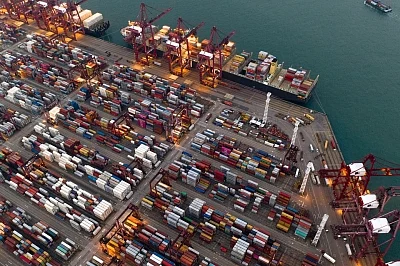By Frank F. Islam
Only six months after Prime Minister Narendra Modi won his re-election with a resounding mandate, the economic outlook in the country looks somewhat bleak. The overall state of the economy was not a primary focal point during the recent Lok Sabha election. Still, it was no secret in the run-up to the polls that sectors such as real estate, manufacturing, banking and finance were troubled. Nevertheless, at the beginning of Modis second term, many hoped that the Prime Minister, voted back to power for another five years in the largest democratic exercise in history, would take some bold moves to improve the countrys economic conditions. However, that hasnt happened to date. As a result, the worlds fifth-largest economy faces strong headwinds that it hasnt seen since the early 1990s.
In the past few months, more core industries have joined the list of troubled sectors. Earlier this month, it was revealed that two of the largest telecom operators in the country, Bharti Airtel and Vodafone Idea, had suffered a combined loss of $10 billion in the preceding quarter. This casts a shadow over India's entire telecommunication sector -- the second largest in the world. Three forecasters - State Bank of India, Nomura Holdings and Capital Economics - had lowered their predictions for the last quarter of this year to below 5 per cent. This would mean that the corporate tax cut announced by Finance Minister Nirmala Sitharaman -- the government's boldest move to steady the economy in the past several years -- has had little or no impact. It will dampen public sentiment which is critical to the current and future wellbeing of the entire Indian economy. Available data points suggest that sentiment has already begun to falter.
There has been a slowdown in consumption, with rural consumption decreasing by 8.8 per cent, a 40-year low. And, growth has also slowed in the so-called "fast-moving consumer goods" sector for four consecutive quarters, indicating that consumers are becoming more and more reluctant to spend their hard-earned money. This past week, former Prime Minister Manmohan Singh penned an op-ed titled "India's economy is perched in a precarious state currently." He writes, "Incomes are not growing. Household consumption is slowing. People are dipping into their savings to maintain similar levels of consumption. Headline GDP growth is accruing almost entirely to the creamy layer at the top."
If these downturns continue' the real danger for India will be that the overall economy might not pick up any time soon and real GDP could even continue to decline. Either circumstance would necessitate a major intervention from the Modi administration similar to one taken in the past.
In 1991, during a major economic crisis then-Prime Minister Narasimha Rao took moves to change the course of the Indian economy by launching major market reforms. That was perhaps the most significant domestic policy decision taken by any government in an independent India.
The time is now ripe for a big and bold move from the Modi administration. The Prime Minister has proved that he is capable of bold moves and big-thinking. Moves such as demonetization and abrogation of Article 370 which removed special privileges to the former state of Jammu and Kashmir demonstrate that on the political front.
But on the economic front, there has not been anything quite that dramatic. Implementation of the Goods and Services Tax (GST) has been touted as a big-ticket item. But the GST was actually crafted by the previous United Progressive Alliance government, led by Prime Minister Singh.
The current crisis provides the Modi government with a great opportunity to kick-start Economic Reforms 2.0. (Economic Reforms 1.0 being Singh's liberalization of the economy nearly three decades ago.) An economic reforms package could reshape and remodel the Indian economy and the reforms package should include upgrading the country's infrastructure, setting up and promoting green industries, increased use of artificial intelligence, improving the quality of education, and significant jobs creation.
In the past quarter century, India's GDP has registered a nearly 10-fold increase and its population has grown more than 40 per cent, but the country's infrastructure has not kept pace with the growth. The mass migration of people from rural areas to cities has led to unbridled and unplanned expansion of urban areas and has put an unbearable burden on the urban infrastructure. As a result, town and city administrations have been unable to keep the urban areas clean and provide their residents clean water.
Finally, there is the issue of pollution. In 2018, according to the World Health Organization, nine of the ten most polluted cities in the world were in India. This sad and sorry condition must be addressed as part of a reforms package not only for the health of the economy but also for the health of all Indian citizens.
In conclusion, tough economic times call for bold and brave moves. By taking the actions outlined herein, the Modi administration could right India's economic ship. More importantly, it could put the framework in place for a 21st century Indian economy that benefits all citizens. Because of his unrivalled and unmatched popularity and proven track record in select areas, the Prime Minister has the potential to sell an economic reforms package that will position India for success in the short term and for the remainder of this century and centuries to come.
(Frank F. Islam is an entrepreneur, thought and civic leader based in Washington, DC. The views expressed here are personal)
--IANS
islam/am
(At The Quint, we question everything. Play an active role in shaping our journalism by becoming a member today.)
